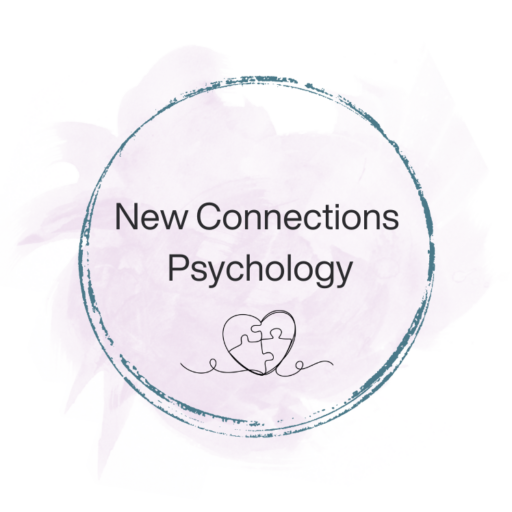Introduction
Referred to as psychotherapy, counselling, talk therapy, or just therapy, this form of mental health assistance is a lifeline for individuals grappling with emotional turmoil, life’s hurdles, and mental health disorders.
The role of therapy in alleviating symptoms of various mental health disorders is significant. It provides individuals with the tools necessary to manage symptoms that may not immediately respond to other treatments. Studies demonstrate that therapy’s impact outlasts that of medication, as it equips individuals with the abilities to handle their symptoms independently. This skill set persists even after therapy concludes, potentially leading to continued improvement and reducing the need for additional treatment.
Mental health disorders are prevalent. The National Alliance on Mental Health provides data showing that 1 in 5 American adults grapples with a mental health disorder, while 1 in 25 adults contends with a serious mental health condition.
However, only approximately 40% of those with mental health problems seek assistance. If left untreated, these mental health conditions can deteriorate and provoke other adverse effects. These may include:
- Inability to maintain employment or attend school
- Struggles in relationships or childcare
- Heightened risk of health complications
- Hospital admissions
- Suicide
In the United States, suicide ranks as the second most common cause of death for individuals aged between 10 and 34. Roughly 90% of those who commit suicide in the U.S. have been dealing with a mental health disorder.
Does Therapy Benefit Me?
Directly suggesting that someone needs therapy can lead to stigmatization. It’s undoubtedly hard to watch someone you care about wrestle with mental health issues, but the decision to seek help should come voluntarily—unless they are endangering themselves or others.
A more supportive approach would be encouraging a loved one to explore potential therapy options. You could even offer to help them select a suitable therapist. If therapy feels obligatory, people may be less receptive and may find it challenging to commit to the change process.
While therapy can guide people through the struggles leading to suicidal thoughts, it’s typically not the first choice for those in crisis. If you are in such a situation, immediate assistance is available through suicide helplines via phone, text message, or online chat. You might be advised to contact or go to your nearest emergency room. Once the immediate crisis has passed, a therapist can provide ongoing support.
When a mental health or emotional issue starts to disrupt everyday life and functionality, therapy might be suggested. Therapy offers insights into your feelings, their potential causes, and coping strategies.
Therapy provides a safe platform to navigate life’s adversities like relationship breakups, loss, parenting struggles, or familial conflicts. For instance, couples therapy can equip you and your partner with the skills to resolve relationship issues and foster healthier interactions. For abusive relationships, however, crisis resources rather than couples counseling are typically recommended.
Should I Consider Therapy?
Deciding to embark on therapy requires careful thought. You may want to see if time, lifestyle modifications, or the support of loved ones can alleviate your struggles.
The American Psychological Association advises contemplating therapy when an issue causes distress and hinders some aspect of your life, particularly when:
- Dealing with the issue consumes at least an hour of your day
- The issue induces embarrassment or leads to social avoidance
- The issue diminishes your quality of life
- The issue negatively impacts your school, work, or relationships
- You’ve had to make life changes or develop habits to cope with the issue
If you exhibit any of the following emotions or feelings to the extent that they disrupt your life, therapy can help mitigate their effects. It’s crucial to consider getting help if you feel controlled by these symptoms, or if they could harm you or others:
- Overwhelm: Feeling like you have an insurmountable amount to do or cope with, leading to physical health issues due to stress.
- Fatigue: A physical symptom often associated with mental health issues like depression.
- Disproportionate rage, anger, or resentment: Seeking support to handle these feelings can be beneficial when they’re extreme, persistent, or leading to violent or potentially harmful actions.
- Agoraphobia: This involves fear of experiencing panic attacks or getting trapped in certain places, leading some individuals to remain homebound.
- Anxious or intrusive thoughts: Worrying is normal, but when it consumes a substantial portion of your day or triggers physical symptoms, therapy can be helpful.
- Apathy: Losing interest in usual activities or life in general can signify mental health issues like depression or anxiety.
- Hopelessness: Persistent feelings of hopelessness can lead to suicidal thoughts.
- Social withdrawal: If social situations cause you distress or fear, therapy can help manage these feelings.
What If I’ve Already Tried Therapy and It Didn’t Work?
Therapy may not always yield immediate results. Despite the ideal therapeutic environment, symptom improvement may take time. The seeming lack of progress can lead to frustration and feelings of wasted time and resources, causing many people to discontinue therapy.
The efficacy of therapy can also be influenced by various factors. Not every therapy method or therapist is suitable for everyone. A previous negative experience with a particular therapist or type of treatment might deter you from considering therapy again.
Finding a therapist specializing in your specific issues can be beneficial. If you haven’t been diagnosed yet, you can discuss your symptoms with prospective therapists. Ethical therapists will inform you if they can help with your situation, and if not, they can usually suggest someone who can.
Remember, different approaches might be more effective for different issues. Misdiagnosis can also affect the success of the treatment. If you didn’t feel understood in your previous therapy, or if you notice different symptoms, a new therapist might be a better match.
Why Should I Consider Therapy?
If therapy is on your mind, you may be weighing the potential disadvantages. Cost could be a factor. Therapy can be challenging, as it involves confronting past trauma or painful experiences. It requires honesty with yourself and your therapist and is not an instant solution.
However, if you’re prepared to put in the effort, therapy can be rewarding. It offers a safe, non-judgmental environment where you can express anything to a professional trained to help. Here are some benefits of therapy:
- Self-discovery: Therapists help you identify patterns and connections in your life and offer guidance when you’re feeling lost.
- Goal achievement: If you’re unsure of your goals, therapy can assist in defining them and devising realistic steps to achieve them.
- Improved relationships: Whether single or in a relationship, therapy can help you navigate relational difficulties like insecurity or trust issues.
- Better health: There’s a connection between emotional and physical well-being. Therapy can enhance overall health by addressing untreated mental health issues that might affect physical health.
- Overall life improvement: If you feel something is impeding your life progress, therapy can help identify and address it.
Even if you’re uncertain about committing to therapy, many therapists offer an initial free session or phone consultation to discuss your concerns. Depending on your symptoms, they can advise whether you should seek help.
Online Therapy
The advent of online therapy, or teletherapy, has revolutionized access to mental health care. This form of therapy employs digital tools, enabling you to connect with mental health professionals over the internet, often through a video call. In some cases, therapists can aid via phone calls, text messages, or online chats. Online therapy is particularly beneficial for individuals residing in remote areas, those with busy schedules, people with mobility challenges, or those who feel more comfortable receiving therapy in their own space. It also mitigates some of the stigma attached to seeking mental health services, as sessions can be conducted in private. Additionally, during public health crises like the COVID-19 pandemic, online therapy has played an essential role in continuing mental health support safely. However, it’s worth noting that while online therapy can be incredibly beneficial, it might not be suitable for everyone or for every type of mental health condition. For instance, individuals dealing with severe mental health conditions might require in-person care.
Conclusion
In conclusion, therapy, whether conducted in person or online, can be an instrumental tool for anyone grappling with emotional difficulties, life challenges, or mental health conditions. Its benefits extend beyond symptom reduction, imparting skills that aid in self-management of symptoms, fostering better relationships, and improving overall quality of life. Remember, every person’s experience with therapy will differ, and it’s crucial to find a therapeutic approach and a therapist that resonate with your needs. Don’t be disheartened if therapy doesn’t yield immediate results; progress takes time and is a testament to your resilience and commitment to personal growth. If you’re uncertain about starting therapy, consider reaching out to a mental health professional for an initial discussion. Your mental health is vital, and seeking help is a significant step towards nurturing your well-being.

